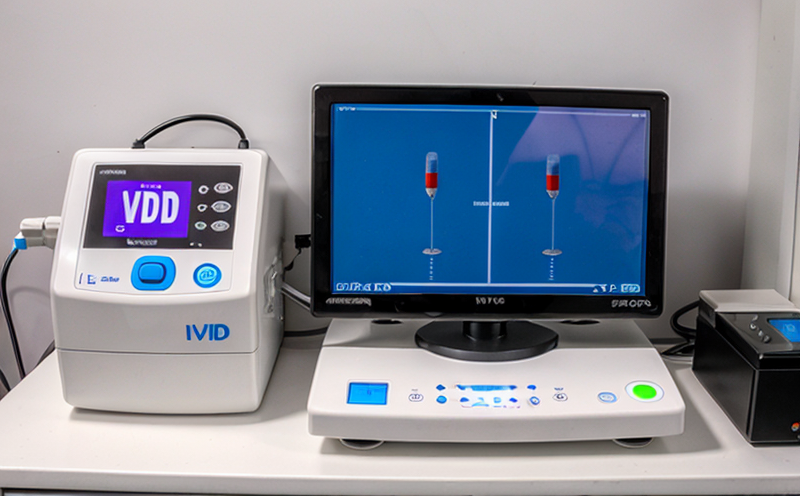Data Privacy Compliance Testing for IVD Cloud Platforms
Ensuring data privacy compliance in the realm of In Vitro Diagnostic (IVD) cloud platforms is crucial for protecting patient information and maintaining regulatory standards. The healthcare sector, especially with the increasing reliance on digital technologies, must adhere to stringent regulations like GDPR, HIPAA, and ISO/IEC 27001 to safeguard sensitive data.
Data privacy compliance testing involves a comprehensive approach that includes evaluating how cloud platforms handle personal health information (PHI) and other protected health information (PHI). This service is particularly vital for IVD devices as they often involve the collection, storage, and analysis of patient-specific data. The primary goal is to ensure that the platform is secure against unauthorized access and complies with all relevant legal and regulatory requirements.
The testing process begins with a thorough review of the cloud platform’s architecture and security protocols. This includes assessing encryption methods, access controls, and audit trails. Compliance checks are then performed to verify adherence to international standards such as ISO/IEC 27001 for information security management systems and GDPR for data protection.
Once identified areas of non-compliance or potential vulnerabilities are addressed, the service provider conducts rigorous penetration testing and vulnerability assessments. This ensures that any weaknesses in the system are mitigated before they can be exploited by malicious actors. Additionally, regular updates and patches are tested to maintain ongoing compliance with evolving regulations and best practices.
For quality managers, this service provides peace of mind knowing that their IVD cloud platforms meet stringent regulatory requirements. Compliance officers benefit from reduced risk exposure, while R&D engineers gain insights into secure design principles. Procurement teams can leverage these findings for informed decision-making regarding vendor selection and contract negotiation.
The impact on customer satisfaction is significant as it translates to enhanced trust in the healthcare ecosystem. Patients feel safer knowing their data is protected, which fosters confidence in the diagnostic process. The service also supports business continuity by minimizing legal risks associated with non-compliance.
- Customer Impact and Satisfaction: Increased trust through secure data handling, reduced risk of data breaches, enhanced patient safety, and compliance with regulatory standards.
Benefits
Data privacy compliance testing for IVD cloud platforms offers numerous advantages to healthcare organizations. By ensuring adherence to stringent regulations, these tests protect sensitive information from unauthorized access or misuse. This not only mitigates the risk of data breaches but also enhances patient trust and satisfaction.
The service helps organizations avoid hefty fines and penalties by preventing non-compliance with legal requirements such as GDPR and HIPAA. Additionally, it supports the development of secure and reliable IVD cloud platforms that can withstand rigorous scrutiny from regulatory bodies.
Compliance testing also facilitates smoother international business operations, as it ensures that data protection measures are aligned across different jurisdictions. This is particularly important for healthcare providers operating in multiple countries or regions with varying compliance requirements.
Moreover, the service contributes to a safer and more secure healthcare environment by identifying and addressing potential vulnerabilities early on. This proactive approach helps maintain business continuity and reputation management, which are critical factors in the healthcare sector.
Quality and Reliability Assurance
Data privacy compliance testing plays a pivotal role in ensuring the quality and reliability of IVD cloud platforms. By conducting thorough assessments, organizations can identify and rectify any deficiencies or gaps in their data protection measures. This process ensures that the platform operates efficiently and effectively, thereby enhancing overall performance.
The service involves multiple stages to ensure comprehensive coverage. Initially, a risk assessment is conducted to evaluate potential threats and vulnerabilities. This helps prioritize areas requiring immediate attention and resources. Subsequently, penetration testing is performed to simulate real-world attacks and identify weaknesses in the system.
Regular audits and reviews are also part of the service package, ensuring ongoing compliance with evolving regulations and best practices. These periodic checks help maintain a high standard of data protection, which is essential for maintaining patient trust and satisfaction.
The service provider also offers training and guidance to healthcare organizations on how to implement effective data privacy measures. This includes providing resources and recommendations for improving security protocols and enhancing overall compliance with regulatory requirements.





